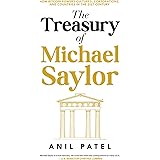Could a nation truly thrive by embracing a digital currency as its official money? The video above expertly introduces El Salvador’s groundbreaking decision. This nation made history in September 2021. It became the first country to adopt Bitcoin as legal tender. This bold move changed the financial landscape for its people. It also sent ripples across the global economy.
President Nayib Bukele championed this initiative. He envisioned a future of greater financial inclusion. His goals included attracting foreign investment. He also sought to reduce costly remittance fees. El Salvador’s economy faced significant hurdles. Low growth and high public debt were constant struggles. A heavy reliance on remittances defined its economic structure. Many citizens lacked traditional banking access. They depended on expensive money transfer services. Bukele saw Bitcoin as a beacon of hope. It offered a more efficient and accessible financial pathway. This initiative aimed to lessen dependence on the US dollar. It also sought to spur overall economic development.
Understanding El Salvador’s Economic Foundations
Before the grand Bitcoin experiment, El Salvador grappled with deep-seated economic issues. Its economy often felt like a car stuck in low gear. Growth remained stubbornly slow. Public debt levels were concerningly high. This created pressure on national resources. The country relied heavily on money sent home by citizens abroad. These remittances formed a huge part of its Gross Domestic Product. They acted like a vital lifeline. Without them, many families would struggle immensely. Yet, these transfers came with significant costs.
Furthermore, traditional banking was a luxury for some. A vast segment of the population was “unbanked.” They had no access to bank accounts. They couldn’t use credit cards. This made saving and transactions difficult. These individuals were excluded from the modern financial system. Bitcoin offered a radical solution. It promised to bridge this gap. It aimed to provide digital financial services for everyone. This could transform daily economic life. It offered a new path to financial empowerment.
The Bitcoin Law and Its Practical Implementation in El Salvador
The **El Salvador Bitcoin** Law passed in September 2021. This date marked a pivotal moment. It officially recognized Bitcoin as legal tender. The government swiftly moved to facilitate its use. They launched the Chivo Wallet, a digital platform. This wallet allowed transactions in both Bitcoin and US dollars. It aimed to make digital payments seamless. Think of it as a bridge between two financial worlds.
A network of Bitcoin ATMs sprang up nationwide. These ATMs allowed easy conversion between currencies. They connected the digital Bitcoin world to physical cash. To jumpstart adoption, a clever incentive was offered. Every new Chivo user received $30 worth of Bitcoin. This was like giving everyone a small seed to plant. The goal was to encourage daily use. It aimed to integrate Bitcoin into everyday life. This included buying groceries or paying bills. The government hoped to swiftly normalize **El Salvador Bitcoin** transactions.
Initial Adoption: High Hopes and Emerging Challenges
Initial reports were very encouraging. Millions downloaded the Chivo Wallet app. This showed a strong initial interest. The idea of using Bitcoin was captivating. However, actual usage for daily transactions told a different story. Many citizens still preferred the US dollar. They cited concerns about Bitcoin’s inherent volatility. This was like trusting a bouncy castle with your life savings. People wanted stability. Businesses also showed resistance. They worried about Bitcoin’s fluctuating value. Integrating new digital systems posed technical challenges. This was not a simple plug-and-play solution.
Despite government efforts, remittance processing via crypto remained low. Only a small percentage used the new system. Traditional methods persisted. This indicated a gap. There was a difference between app downloads and real-world adoption. Trust in the new digital currency needed time to grow. Education played a critical role. Many people needed to understand Bitcoin’s fundamentals. They needed to grasp its benefits and risks. This showed the complex journey of national cryptocurrency adoption.
The Undeniable Benefits of El Salvador’s Bitcoin Leap
Despite initial hurdles, the **El Salvador Bitcoin** experiment brought significant upsides. Enhanced financial inclusion topped the list. It offered digital transaction access. This was previously unavailable to the unbanked. Imagine a bank in your pocket. This is what Chivo aimed to be. People could now send and receive money effortlessly. They bypassed traditional banking fees and hurdles. It democratized access to financial services.
The initiative also garnered immense international attention. El Salvador became a global talking point. Tourism received a boost. Many visitors were drawn by the novelty of using Bitcoin. It was like visiting a futuristic theme park. The country gained national branding as a “crypto hub.” It positioned itself at the forefront of digital currency adoption. This could attract future foreign investment. It created a unique identity. This branding set it apart on the global stage.
Navigating the Criticisms and Risks of National Bitcoin Adoption
The bold experiment faced significant criticisms. Bitcoin’s inherent volatility was a major concern. Its price swings were like a financial roller coaster. This posed huge risks for citizens’ savings. A day’s earnings could diminish overnight. The Chivo Wallet’s rollout also faced issues. It was plagued by technical glitches. Security vulnerabilities further eroded public trust. Users reported lost funds or transaction errors. These problems made many hesitant to use it.
International bodies voiced their concerns. The IMF and World Bank cited financial stability risks. They worried about money laundering and debt management. Credit rating agencies downgraded El Salvador’s debt. This indicated increased financial risk. The mandatory acceptance of Bitcoin for businesses also drew fire. It limited merchants’ choice. This felt like being forced to accept a currency you didn’t trust. These criticisms highlighted the complexities. They showed the challenges of integrating a volatile asset into a national economy.
The Evolving Landscape: Volcano Bonds and a Pragmatic Shift
El Salvador harbored grand ambitions. It planned to issue “Volcano Bonds.” These were Bitcoin-backed bonds. They aimed to fund “Bitcoin City.” This crypto-friendly zone would be powered by geothermal energy. It was a vision of a sustainable crypto utopia. However, the launch of these bonds faced delays. The project’s future remains uncertain. This reflected ongoing challenges. It highlighted the speculative nature of such ventures.
In recent years, El Salvador has scaled back its ambitions. It adopted a more pragmatic approach. The mandatory acceptance for businesses was removed. Daily Bitcoin purchases by the government also ceased. Bitcoin remains legal for private trade. However, its status as legal tender has effectively been modified. This adjustment shows adaptability. It reflects a learning curve. The nation is still navigating this uncharted territory. The long-term implications of this **El Salvador Bitcoin** experiment are still unfolding. It offers invaluable lessons for other nations considering similar paths.







